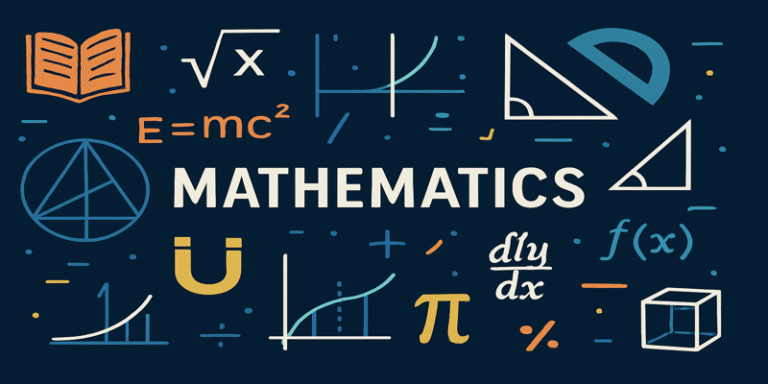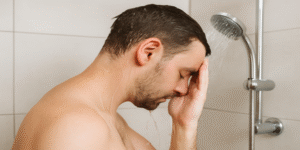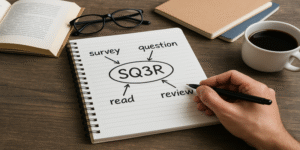Mathematics is often hailed as the language of the universe, underpinning much of the scientific, economic, and technological advancements in society. The discipline is deeply rooted in logic, reasoning, and abstraction, and spans both pure theoretical investigations and real-world applications. As such, the academic study of mathematics is organised into a variety of core modules that serve to scaffold learners’ understanding while broadening their analytical capacities. This article explores the principal study modules commonly found in mathematics programmes, shedding light on their objectives, applications, and interdisciplinary relevance.
1.0 Calculus and Analysis
The foundation of most undergraduate mathematics degrees is Calculus, which encompasses differential and integral techniques. Calculus enables the analysis of change and motion and is central to fields ranging from physics to economics.
Real analysis, which extends calculus into rigorous theoretical territory, involves the study of limits, sequences, continuity, and functions. It serves as a bridge between intuitive and formal mathematics. According to Houston (2001), analysis teaches students to move from computational skills to abstract mathematical reasoning — a necessary transition for advanced study (Houston, 2001).
2.0 Linear Algebra
Linear Algebra examines vector spaces, matrices, and linear transformations — tools that are indispensable in computer graphics, machine learning, and physics. The ability to model multidimensional systems in compact form makes this module essential for applied sciences.
Clark et al. (2019) note that linear algebra also helps foster abstract reasoning through proofs and logical structures, thereby preparing students for higher-level modules (Clark et al., 2019).
3.0 Abstract Algebra
Unlike linear algebra, which typically deals with vector spaces, abstract algebra focuses on algebraic structures such as groups, rings, and fields. These structures have applications in cryptography, coding theory, and quantum computing.
Mohanty (2024) emphasises the cognitive challenges posed by abstract algebra, suggesting a need for conceptual scaffolding to foster deep understanding (Mohanty, 2024).
4.0 Discrete Mathematics
Discrete Mathematics is concerned with countable structures and includes topics such as combinatorics, graph theory, logic, and algorithms. It is widely employed in computer science, data science, and network theory.
As Avigad (2020) outlines, the modularity of discrete mathematics allows it to be taught flexibly, making it suitable for learners from diverse backgrounds (Avigad, 2020).
5.0 Probability and Statistics
Modules in probability and statistics are designed to equip students with tools to model uncertainty, analyse data, and make inferences. These skills are crucial in econometrics, psychometrics, epidemiology, and AI development.
Bishop (1996) argues that statistical reasoning enhances critical thinking and supports scientific inquiry across disciplines (Bishop, 1996).
6.0 Differential Equations and Mathematical Modelling
Differential Equations describe dynamic systems and appear in physical, biological, and economic models. They are integral to understanding heat transfer, population growth, financial forecasting, and epidemiological trends.
Modules in this area typically include both theoretical understanding and numerical methods for solving complex systems. According to Lucas (1983), modelling using differential equations allows students to visualise real-world behaviours through mathematical frameworks (Lucas, 1983).
7.0 Geometry and Topology
While geometry concerns the properties of space and shape, topology delves into continuity and transformation, often referred to as “rubber-sheet geometry.”
These topics are pivotal not only in pure mathematics but also in robotics, computer vision, and cosmology. As noted by Benton et al. (2017), teaching geometry in relation to digital tools significantly improves spatial reasoning and learner engagement (Benton et al., 2017).
8.0 Mathematical Logic and Foundations
This module explores the philosophical and logical underpinnings of mathematics, such as set theory, proof techniques, and formal logic. It is particularly relevant for those interested in theoretical computer science and metamathematics.
Lawvere and Schanuel (1991) provide a compelling introduction to the philosophical aspects through conceptual mathematics, allowing students to interrogate the nature and limits of mathematical reasoning (Lawvere & Schanuel, 1991).
9.0 Numerical Methods and Computational Mathematics
These modules bridge the gap between theory and practice by teaching students to implement algorithms and perform computations on real-world data using software tools like Python, MATLAB, or R.
Kellman et al. (2010) argue that computational modules help develop pattern recognition, fluency, and problem-solving strategies, enhancing both understanding and application (Kellman et al., 2010).
10.0 Mathematics Education and Pedagogy
For future educators, modules on mathematics education explore effective teaching methods, curriculum design, and the psychological processes behind mathematical learning.
Jankvist (2009) and Clark et al. (2022) underscore the importance of integrating history, cultural context, and learner psychology into mathematics instruction to create a more engaging classroom environment (Jankvist, 2009; Clark et al., 2022).
References
Avigad, J. (2020). Modularity in mathematics. Review of Symbolic Logic.
Benton, L., Hoyles, C., Kalas, I., & Noss, R. (2017). Bridging primary programming and mathematics. Springer.
Bishop, A.J. (1996). International Handbook of Mathematics Education. Springer.
Clark, K.M., Chorlay, R., & Tzanakis, C. (2022). History of mathematics in mathematics education: Recent developments in the field. ZDM Mathematics Education.
Clark, K.M., Kjeldsen, T.H., Schorcht, S., et al. (2019). History of mathematics in mathematics education – An overview. Mathematica Didactica.
Houston, K. (2001). Assessing undergraduate mathematics students. Springer.
Jankvist, U.T. (2009). On empirical research in the field of using history in mathematics education. Revista Latinoamericana de Investigación en Matemática Educativa.
Kellman, P.J., Massey, C.M., & Son, J.Y. (2010). Perceptual learning modules in mathematics. Topics in Cognitive Science, 2(2), 285–305.
Lawvere, F.W., & Schanuel, S.H. (1991). Conceptual Mathematics: A First Introduction to Categories. Cambridge University Press.
Lucas, W.F. (1983). Modules in Applied Mathematics: Life Science Models. Springer.
Mohanty, A. (2024). Unveiling the complexities of ‘Abstract Algebra’ in University Mathematics Education. Cogent Education.









